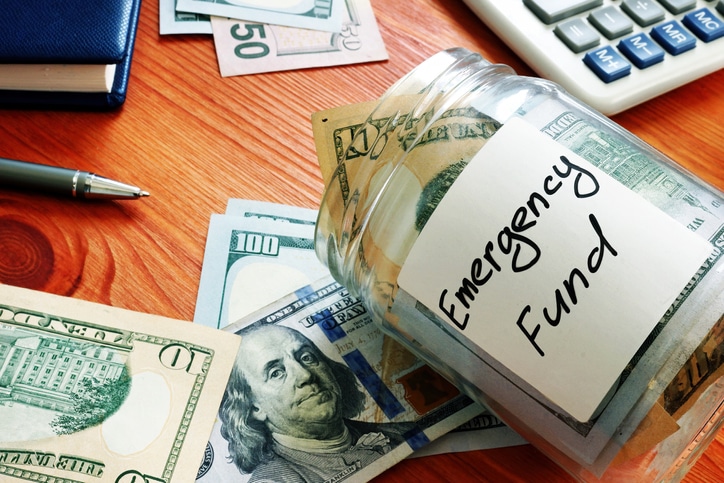An emergency fund is a portion of money set aside to be used as a buffer in the event of an emergency or for an unforeseen expense. During the accumulation phase of life, or the years in which a household is reliant on a paycheck and actively saving toward retirement, an emergency fund provides a safety net to balance the budget during events such as loss of work, an expensive medical bill, or a car repair. In every personal finance textbook, you will find details on how to best manage an emergency fund. However, most of these texts focus on the accumulation phase of life. They aren’t focused on applying these beneficial principles to retirees. So, let’s go over the details of an emergency fund for retirees.
How much should I have in an emergency fund?
There is a rule of thumb that is used when determining how much a household should have in an emergency fund. The guidance is to have at least three to six months’ worth of expenses set aside. This can be a good benchmark to measure yourself against. But the problem with a rule of thumb is that everyone’s individual situation is different and may require more customization.
Calculating an emergency fund during retirement is different than during accumulation. For instance, the risk of losing your job when you’re retired is zero percent. However, in most cases, this does not completely eliminate the risk of income loss. You must determine, based on your own cash flow risks, what amount is right. For example, a retiree with multiple rentals and a history of renter turnover will require more cash on hand than a retiree whose only income source is from Social Security and a steady pension.
Where should you invest your emergency fund? How much cash should I have on hand?
The goal of an emergency fund is not to earn the highest return possible. It is to have the funds accessible when needed. A common place for an emergency fund to be kept is in a savings or money market account. You can do this at your preferred bank or credit union. Online banks that pay higher interest rates can also be a good choice. Any of these options will work, as long as your money is easily accessible.
Do not keep your entire emergency fund in hard cash. Having a limited amount on hand in your home is reasonable. However, there are added risks in having large sums of cash in your home.
Investing excess savings
Once you have determined the amount for a comfortable emergency fund, you may need to add or subtract from your current account. If you need to increase your emergency fund, the best way to do this is by adding a portion of your monthly income to the fund until you have the desired balance. Anytime you use your emergency fund, immediately work toward increasing it back to the desired amount.
It can also be common for retirees to accumulate large sums of cash in savings accounts. These are much greater than an adequate emergency fund requires. During the accumulation phase, the guidance is to put 15 – 20% of our income away into savings. In retirement, this mindset changes. Keeping extra savings in the bank, in excess of your emergency fund, can be a missed investment opportunity. This will hamper your ability to keep your investments up with inflation. If you have a balance in your bank account on top of your emergency fund needs and what you might reasonably spend in a short period of time, consider investing these funds for a greater opportunity for growth. You should also consider reducing income from sources such as taxable retirement accounts to avoid paying taxes on this unspent income just to have it accumulate in the bank.
A good question to ask yourself if you are in this situation is “when do I plan on spending this money?” If it is more than five years out, investing the funds in a diversified portfolio will result in greater growth opportunities. Talk to your advisor to determine the right investment allocation.
Conclusion
Though the amount and use of an emergency fund slightly change for individuals moving from the accumulation phase to the retirement phase of life, it is still an important part of a retiree’s financial household. Having too little or too much in savings for a rainy day could cost you thousands of dollars over the course of your retirement. Talk to one of Peterson Wealth Advisors’ Certified Financial Planners with your questions about an emergency fund for retirees and start your retirement income planning with our Perennial Income Model.
